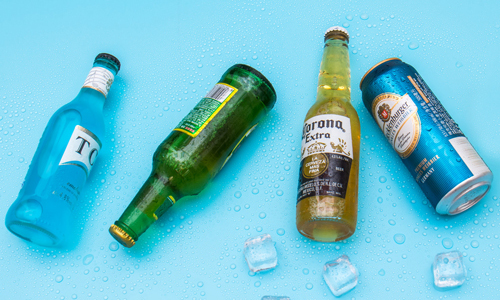Thermoplastic elastomer compounds have a soft touch that is appealing and beneficial for consumer goods. TPEs are also useful in seals or in bottle-cap liners. A thermoplastic elastomer is a type of thermoplastic polymer. Thermoplastics melt when heated above the material's melting point and solidify when cooled. Because this melting process can be repeated many times, thermoplastics can be recycled. Thermoplastics include polyvinyl chloride (PVC), polyethylene (PE), and many others. Thermoset polymers, on the other hand, cannot be melted again once they are formed. Silicone and synthetic rubber (such as latex and ethylene propylene diene monomer or EPDM) are thermosets. Thermoplastic elastomers are thermoplastics with an elastomeric component that makes them soft and flexible. Although they can have a rubbery feel and are sometimes called thermoplastic rubber, they are not made out of rubber. Unlike thermoset rubbers, these plastic compounds can be recycled. Thermoplastic elastomers can be formed into parts in the same way that other thermoplastics can be, so a "soft" TPE can be molded or extruded onto a "hard" thermoplastic in one process. This "co-molding" or "overmolding" creates design freedom that is not possible with thermoset rubbers. In addition, processing is much more efficient. For example, a thermoset part might take three minutes to mold, while a thermoplastic elastomer may take only 30 seconds. These compounds are widely used as "soft touch" grips because the soft TPE can be easily molded or extruded onto a hard thermoplastic material using the same processing equipment. They also bond well to most rigid thermoplastic substrates, such as polypropylene (PP), polystyrene (PS), polyamide (PA), and acrylonitrile butadiene styrene (ABS). The softness of a TPE is measured by durometer on the Shore hardness scale. The lower the durometer, the softer the material. TPEs used for soft-touch grips typically have a durometer of around 60 to 75. Any plastic material--and all its ingredients--used in a product that comes into contact with food must have food-contact approval from the country where it will be used. Approval indicates that the material is safe for people in its intended use. Food-contact approved TPEs can be used to make soft baby spoons or toddler cup spouts, for example. TPEs for healthcare applications must meet the appropriate regulatory standards. TPEs can be sterilized using autoclaves, gamma irradiation, or ethylene oxide. TPEs can be designed to be biocompatible, have high purity, and have low levels of extractable and leachable substances. TPEs can be an alternative to latex, silicone, PVC, or rubber. Sealing rings have traditionally been made out of thermoset rubbers, but TPE sealing rings can be colored (or white) and co-molded to make two-component seals. TPEs are more efficient to process—they use less energy and can be produced faster than thermoset rubbers. Bottle cap liners act as a seal between the bottle contents and the external environment for both metal crowns and plastic caps. Some cap and closure liners are made out of PVC. TPE liners, however, have some advantages over PVC, including better protection against oxygen transmission. Beer, for example, is particularly sensitive to oxygen.
